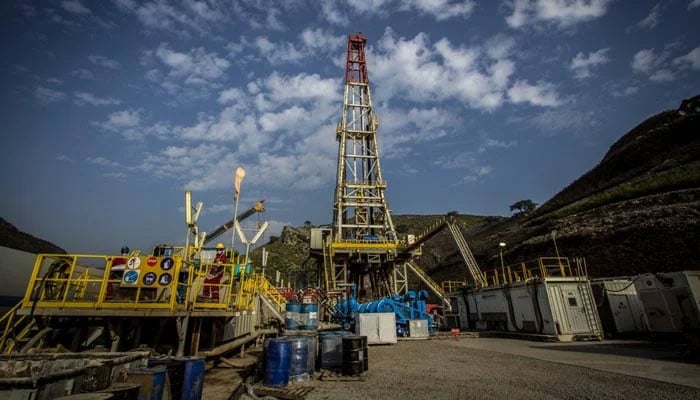
- Circular debt creates cash flow constraints, according to the ministry report.
- This highlights ineffective financial management in PSO, PPL, etc.
- Deplores obsolete and inefficient infrastructure, operational problems.
ISLAMABAD: The Ministry of Finance, in its report, has raised serious questions over financial mismanagement in the oil and gas sector, leading to escalation of circular debt, News reported Saturday.
The ministry pointed out that one of the main weaknesses in the business plans of Pakistan State Oil (PSO), Pakistan Petroleum Limited (PPL), Oil and Gas Development Company (OGDC), Sui Northern Gas Pipelines Limited (SNGPL) and Sui Southern Gas Company Limited (SSGCL) has ineffective financial management.
The prevalence of circular debt, particularly in the energy sector, creates significant cash flow constraints, while payment delays from other state-owned companies and large customers leave these companies with high receivables, affecting their liquidity.
The PSO, for example, is stuck in this circular debt cycle, hampering its ability to meet its working capital needs and invest in growth projects. Similarly, SNGPL and SSGCL are grappling with collection issues, resulting in a weakened financial position and over-reliance on government support.
The report states that all five companies face significant challenges due to outdated and inefficient infrastructure. OGDC and PPL, two of the largest upstream oil and gas companies, continue to operate on aging extraction and production infrastructure, leading to lower productivity and higher operating costs.
SNGPL and SSGCL, responsible for gas transmission and distribution, are experiencing significant unaccounted gas losses (UFG), which are largely due to outdated pipelines, leaks and poor metering systems .
Despite awareness of the problem, business plans have been slow to allocate adequate resources to upgrade critical infrastructure, which in turn leads to loss of revenue and operational inefficiency.
Lack of diversified energy investments in PSO, PPL and OGDC have historically focused on fossil fuels, with limited progress in diversifying their energy portfolios.
As global trends shift toward renewable and cleaner energy alternatives, these companies remain heavily dependent on oil and gas, making them vulnerable to market volatility and environmental regulations.
The PSO still focuses primarily on the downstream oil sector, with insufficient investment in renewable energy initiatives. This lack of diversification in their business plans leaves them vulnerable to long-term risks associated with declining global demand for fossil fuels, volatile commodity prices, and potential government carbon taxes or environmental penalties.
Another common weakness is the insufficient implementation of hedging and risk management strategies in companies. Given the volatility of oil and gas prices, PPL, OGDC and PSO are exposed to price fluctuations which affect their profitability.
Their business plans do not prioritize financial instruments such as futures, swaps or options to mitigate these risks. Additionally, gas distribution companies (SNGPL and SSGCL) lack robust risk management strategies to protect against fluctuations in gas supply costs or unexpected infrastructure disruptions.
Without proactive financial and operational risk management, these businesses remain vulnerable to external market and supply chain shocks.
